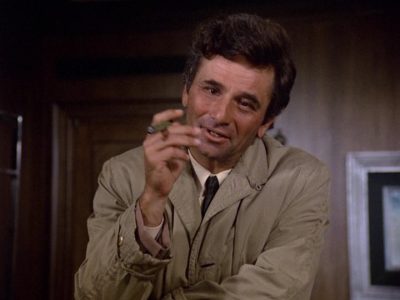An interview with author, Colin Garrow
I’m delighted to welcome author, Colin Garrow, who writes the entertaining Terry Bell murder mysteries and a glorious spoof of Sherlock Holmes, The Watson Letters. He’s also written plays, books for young adults and always has several projects on the go.
If you were to go back in time before your first book, what would you do differently?
The first novel I finished writing was ‘The Devil’s Porridge Gang’. Originally, I was thinking about it in terms of a screenplay but didn’t get further than the title and creating the main character. Then, about twelve years ago I had a go at the NaNoWriMo (National Novel Writing Month) and managed to write ten thousand words in a month but didn’t do anything else with it for ages. By 2013 I’d moved to a small village in Aberdeenshire, was living alone and struggling to make ends meets, so decided to try and finish the book. I’d always intended it to be a story for children, and that’s partly because I didn’t think I could write seriously for an adult audience (despite the fact I’d been writing plays for adults for years). Anyway, I finished it in three months and immediately started on the next one, ‘The Architect’s Apprentice’, another book for kids, followed by yet another, called ‘The Hounds of Hellerby Hall’. I realise now that if I’d pushed myself harder and started writing for adult readers instead of middle grade, I could have established a solid murder/mystery series, instead of all those kids’ books. Then again, maybe I needed to go through that process in order to get to where I am.

How has writing plays influenced the way you write novels?
It’s interesting hearing your words being spoken aloud, but the really interesting thing is when someone else interprets your words. I’ve written plays where I’ve had very specific ideas about a particular speech and what I think the character is saying, but seeing actors bring their own ideas to the words would often bring themes and nuances out that I didn’t know where there. Years ago, I ran a couple of writing courses (at Newcastle and Hull Universities) and used to encourage people to write monologues to explore what their characters were thinking.
I still think monologues are a great exercise for writers and consequently I always read my work aloud to hear where the problems might be, like if a certain passage doesn’t flow or I’ve used too many clunky words. I’ll often try to bring a sense of performance to my reading too, in an effort to hear the different ways a piece of writing might be understood.
You usually have several projects on the go. How do you juggle all these projects and what challenges do they give you?
I hate being tied down to one thing, and I also think it’s important (for me, at least) to have something else to turn to when I get a bit stuck. This works especially well if I go from working on a Terry Bell book to a Watson Letters book, as the writing style is quite different. I’m not sure about the juggling – it’s more like trying to keep each one going in the right direction while staying motivated and interested. And no, I don’t know how to do that.

Why should people read your books?
There are some writers who can truly claim to influence people, but I think of my books like movies or stage plays, so all I want is for my readers to go away having been entertained for a few hours. Other than that, I’d never expect anyone to feel enlightened, enriched, or (for readers in Springfield) embiggened.
Do you write for yourself or your readers?
When I first started writing short stories, I studied women’s magazines, thinking it’d be a way to make a great living. Pretty soon I realised the reason I kept getting rejection slips was that I wasn’t interested in the people I was writing about (aside from the fact most of the stories were crap). When I changed to writing about things that interested me, I found it was a lot easier, so essentially, I write to entertain myself, after all, if I wouldn’t read them, why would anyone else?
In terms of writing and being an author, what was the turning point in your life?
Great question. There’s been a few, but the major turning point was in the early nineties, after I’d moved back to my parents’ house following a couple of really crappy relationships. While looking for a job, I heard about a course in Community Drama. It was a six-month course and explored all sorts of things like writing, storytelling, mask-making, puppets and acting and it changed my life – I realised I was good at creative stuff and so continued my learning curve at the University of Northumberland with a Drama degree. I gradually noticed there’d been a massive shift in my confidence and found I was able to get up in front of people and perform, without feeling incredibly vulnerable.
The next turning point related to writing and my struggle to get down on paper the stuff that was in my head. While I was at uni, we studied various theatre practitioners, including Brecht, Stanislavsky and Mayakovsky. This allowed me to see how different styles of writing and performance worked in different ways, and more importantly, why some of my writing worked and some of it just didn’t. By the second year, my writing improved dramatically (no pun intended) and I started to write short plays and monologues that audiences liked.
Finally, going back to what I said about my first book, I think being able to finish that first novel was a major step forward. I didn’t quite understand how I’d been able to do it (and sometimes still feel that way on finishing a book), but I realised if I could do it once, I could do it again, and that felt amazing.

What are your plans for the future?
At the moment, I’m working towards establishing the various book series I’ve been thinking about for a while. These include the Terry Bell Mysteries and The Watson Letters, of course, but I’m also planning two new series: one is about a nightclub singer in 1950s Newcastle, who gets involved in a kidnapping plot (tentatively titled ‘Blood on the Tyne’), and, because I like a bit of horror, the other is a 17th century tale of witchcraft and malevolence set in London. I also have an unfinished novel called ‘Terminal Black’ that I’ve been fiddling around with for about six years. It’s set in Inverness and Aberdeen and features a dodgy hero and a bent cop.
Along with all the middle grade books in my creative pipeline, I’m aware that sounds like rather a lot, but I’m getting much better at spending time writing, rather than finding excuses for not writing, so I think in the next couple of years, there’ll be a lot of new books coming out of the House of Garrow.
Can you tell me about your current project?
The next two books published will be ‘The Watson Letters Vol 5: Murder on Mystery Island’ and ‘The Curse of Calico Jack’, the second in my Skeleton Cove middle grade horror series. After that, I’ll be busy with the next Terry Bell and the two new projects I mentioned.
When you’re not writing how do you like to spend your time?
I started learning to play the guitar when I was about seven years old. This naturally led to trying other instruments, so I currently have four guitars, two ukuleles, a bouzouki, a mandolin, a five-string banjo, a saxophone and a clarinet (though with the latter two, I’m very much at the beginner stage). I’ve also got a digeridoo, but let’s not go there.

A Long Cool Glass of Murder
When taxi driver and amateur sleuth Terry takes on a new client, he doesn’t expect her to turn up dead. With echoes of his recent past coming back to haunt him, can he work out what’s going on before someone else gets killed?
‘Charis Brown’s elfin-like smile was, like the footsteps on the stairs, noticeably absent. She looked at me, looked at the dead woman and let out the sort of sigh I knew from experience meant it was going to be a long night.’
‘A Long Cool Glass of Murder’ is book #2 in the Terry Bell Mystery series.
If you love mysteries and amateur sleuthing, ski-mask-wearing villains and the occasional bent copper, this’ll be right up your everyday seaside-town street.

Newsletter




One Comment
Colin Garrow
Thanks again for this, Rob – much appreciated.